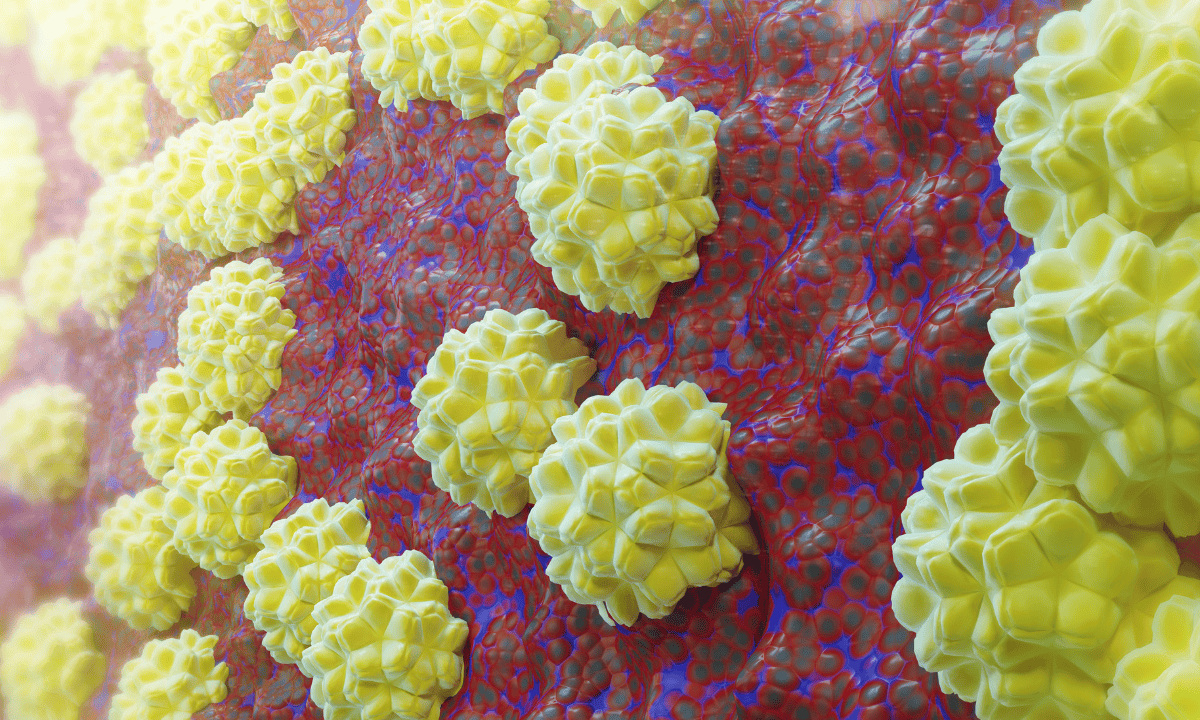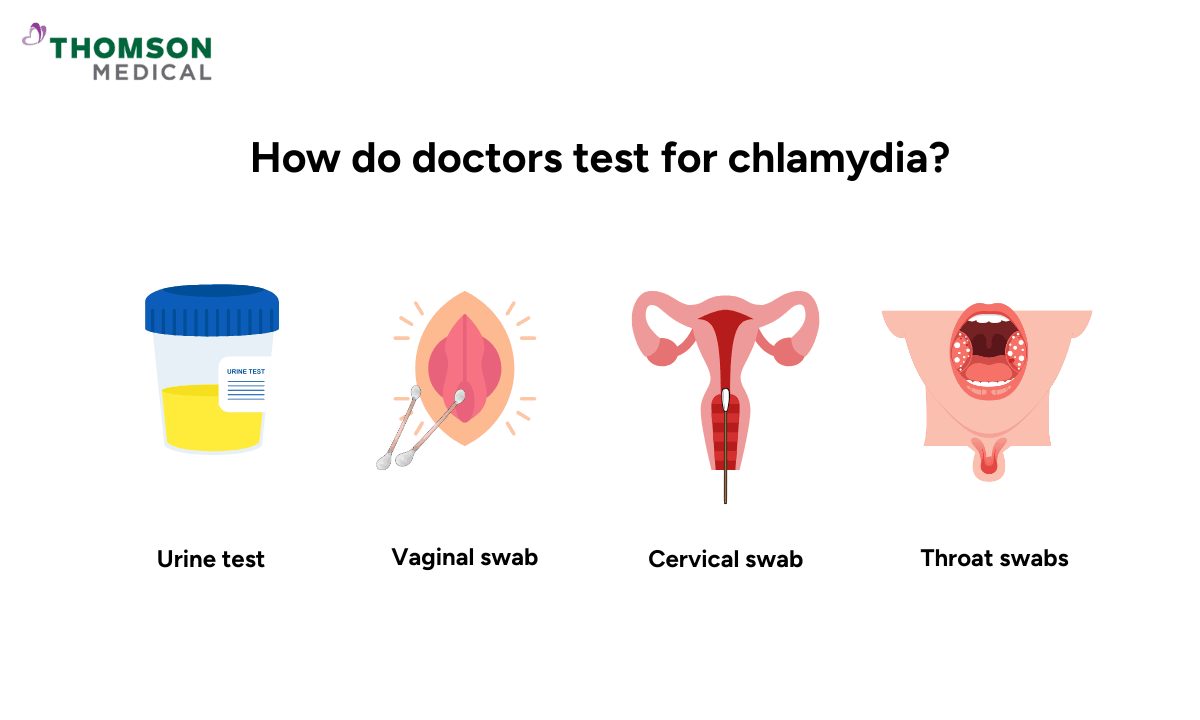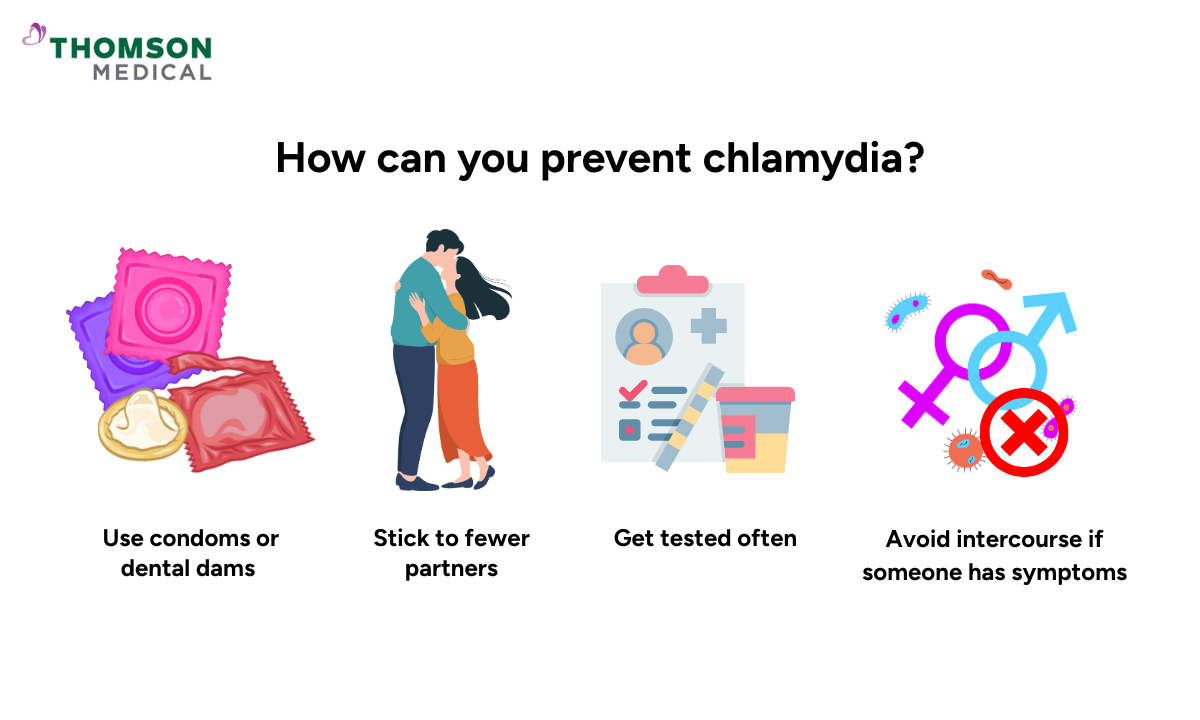Chlamydia is one of the most common sexually transmitted infections (STIs) worldwide. It can affect anyone who is sexually active, regardless of age or background, and often goes unnoticed because symptoms may be mild or absent. If you've been diagnosed or think you might have it, try not to panic. Most people recover completely with the right care without experiencing any lasting problems.
Knowing how chlamydia is transmitted and recognising the early signs can help you to take appropriate action and protect your sexual health.
What is chlamydia?

Chlamydia is a sexually transmitted infection (STI) caused by Chlamydia trachomatis (bacteria that affects your reproductive organs). It can infect different parts of your body, such as your genitals, rectum (the end part of your bowel), throat, or even your eyes.
Many people don't show any symptoms. You might feel perfectly fine but still have the infection and pass it to your partner without knowing.
How do you get chlamydia?
Chlamydia spreads through direct contact when infected genital fluids (such as semen, vaginal fluid, or pre-cum) contact your genitals, rectum, throat, or eyes. So, the bacteria can pass from one person to another even without full penetration. But, the good news is, it doesn't spread through casual contact like hugging, sharing drinks, or using the same toilet seat. The bacteria can't survive long outside the body.
You can get chlamydia from:
Unprotected vaginal, anal, or oral sexual intercourse
Skin-to-skin contact in the genital area without penetration
Pregnant women with chlamydia can pass it to their newborn
Who is at higher risk of getting chlamydia?
Anyone who's sexually active can get chlamydia. But your risk goes up if you:
Are under 25 and sexually active
Have multiple sexual partners
Don't use condoms or dental dams regularly
Have had other STIs before
Knowing these risk factors helps you take steps to protect yourself. If you’re unsure about your risk, talk to a doctor for advice or testing. Our obstetrician & gynaecologist (O&G) at Thomson Medical offer confidential testing and tailored guidance, so you can make informed decisions about your sexual health.
Our O&G specialists
Loading...
What are the symptoms of chlamydia?
Most people with chlamydia don’t notice any signs or feel sick, which is why it’s often called a “silent infection.” When symptoms do show up, they usually appear one to three weeks after you're exposed. The type of symptoms you experience depends on your gender and where the infection is.
Symptoms of chlamydia in women
Many women may not notice symptoms of STIs. However, when symptoms do appear, they may include:
Unusual vaginal discharge (different color, smell, or texture)
Burning or stinging when you urinate
Pain during intercourse
Bleeding between your periods or after intercourse
Pain in your lower abdomen or pelvis
More painful periods than usual
These symptoms can feel like a urinary tract infection (UTI) or just period-related changes. That's why testing is important. You can't always tell what's causing them just by how you feel.
Symptoms of chlamydia in men
Men often have mild symptoms or none at all. If symptoms appear, you might notice:
Clear or cloudy discharge coming from your penis
Burning or pain when you urinate
Pain or swelling in one or both testicles
Itching or irritation inside your penis
If left untreated, the infection can spread to your testicles and cause complications.
Other symptoms in both men and women
Depending on the type of sexual contact, chlamydia can also affect other areas:
Rectal symptoms from anal sex may include pain discharge or bleeding from the rectum
Throat infection from oral sex usually causes no symptoms or only mild soreness
Eye infection occurs when bacteria get into the eyes and may cause conjunctivitis with redness and discharge
How do doctors test for chlamydia?

Testing for chlamydia is straightforward and confidential. Your doctor may recommend a urine test, which is the simplest option. In some cases, swab tests may be used depending on where the infection might be:
Vaginal swab (self-collected or done by a clinician)
Cervical swab during a pelvic exam
Rectal or throat swabs if necessary
Test results are usually available within a few days. The sooner you get tested, the quicker you can begin treatment and prevent complications.
When should you get tested for chlamydia?
You should see a doctor or get tested if you notice any symptoms, are at higher risk of infection, or think you might have been exposed. You should also get tested if:
Your partner has been diagnosed with chlamydia or another STI
You’ve had unprotected intercourse with a new partner
You’re under 25 and sexually active, even if you don’t have symptoms
You have multiple sexual partners
Regular screening is a simple way to protect your sexual health. Taking this step shows care and respect for yourself and your partner.
If you’re concerned about possible exposure to chlamydia or have noticed unusual symptoms, schedule a consultation with our O&G specialists at Thomson Medical. We offer confidential testing and compassionate care to help you get the clarity and support you need.
How is chlamydia treated?
Chlamydia can be treated with antibiotics. Your doctor will usually prescribe one of the following:
Doxycycline, 100 mg twice a day for seven days
Azithromycin, a single 1-gram dose, sometimes used in specific cases
While you’re on treatment, it’s important to follow a few important steps to ensure full recovery and prevent reinfection:
Avoid intercourse for at least seven days after both you and your partner have completed the medication.
Inform any recent sexual partners so they can get tested and treated as well.
You should also get retested after three months, especially if you’re under 25 or at higher risk of reinfection.
Most people recover completely once they finish their antibiotics. Just remember to take every dose, even if you start feeling better before the course is over.
What are the possible complications of chlamydia?
Untreated chlamydia can lead to serious health problems over time, but these complications are preventable with early diagnosis and treatment.
For women:
It can cause pelvic inflammatory disease (PID), an infection of the reproductive organs. PID may lead to infertility, long-term pelvic pain, or ectopic pregnancy, which occurs when a fertilised egg grows outside the womb.
For men:
The infection can lead to epididymitis, a painful swelling of the tube behind the testicles that stores sperm. In rare cases, this can affect fertility.
For both men and women:
Untreated chlamydia increases the risk of getting or transmitting HIV. It can also cause reactive arthritis, a condition that affects the joints, eyes, and urethra.
For newborns:
Newborn babies whose mothers have untreated chlamydia may develop pneumonia (a lung infection) or eye infections. For this reason, it’s important for pregnant women to get tested and treated if needed.
Early testing and treatment can prevent these complications and help protect your long-term reproductive and overall health.
Concerns about your sexual health or long-term effects are understandable. At Thomson Medical, our doctors provide tailored care in a confidential setting to help you recover with peace of mind. Request an appointment today.
How can you prevent chlamydia?

Protecting yourself from chlamydia starts with safe intercourse and open communication. Here are some simple ways to lower your risk:
Use condoms or dental dams consistently when you’re having intercourse
Limit your number of sexual partners
Get tested regularly, especially if you're under 25 or have new partners
Avoid an intercourse if someone show symptoms of an infection
Make sure both you and your partner get tested and treated before having sex again
Protecting your sexual health doesn’t have to be complicated. With awareness, regular testing, and honest conversations with your partner, you can prevent STIs and stay healthy.
FAQ
What is one of the first signs of chlamydia?
The first sign is often subtle or goes completely unnoticed. When symptoms do appear, people usually experience burning when they pee or notice unusual discharge from their penis or vagina.
How does a woman get chlamydia?
A woman can get chlamydia through unprotected vaginal, anal, or oral sex with an infected partner. It can also spread through contact with infected genital fluids or from sharing adult toys that haven't been cleaned properly.
What happens if chlamydia isn't treated?
Without treatment, chlamydia can lead to pelvic inflammatory disease (PID) in women, which can cause infertility and chronic pain. In men, it can cause testicular infections. Both men and women are at higher risk for HIV transmission if they have untreated chlamydia.
How long does chlamydia last?
With antibiotics, chlamydia usually clears up within one to two weeks. Without treatment, it can stick around silently for months or even years, increasing your risk of long-term health problems.
Is chlamydia contagious?
Yes. It spreads easily through vaginal, anal, or oral sex, and sometimes just through genital contact without penetration. Infected mothers can also pass it to their babies during childbirth.
Can chlamydia go away on its own?
Sometimes your body might clear the infection naturally, but this isn't something you should count on. Without treatment, chlamydia can cause serious complications. It's always better to see a doctor, get tested, and complete the full course of antibiotics.
The information provided is intended for general guidance only and should not be considered medical advice. For personalised recommendations and tailored advice based on your unique situations, please consult a specialist at Thomson Medical. Request an appointment with Thomson Medical today.
For more information, contact us:
Thomson Specialists (Women's Health)
Thomson Women's Clinic (TWC)
- Novena:
6592 6686 (Call), 8611 8986 (WA) - Bukit Batok:
6569 0668 (Call), 8686 3525 (WA) - Choa Chu Kang:
6893 1227 (Call), 8282 1796 (WA) Jurong:
6262 8588 (Call), 6262 8588 (WA)- Katong (female doctor):
6970 2272 (Call), 8611 9020 (WA) - Punggol:
6243 6843 (Call), 8811 0328 (WA) - Sembawang: 6753 5228
- Sengkang: 6388 8125
- Serangoon (female doctor): 6382 3313
- Tampines: 6857 6266
- Tiong Bahru: 6276 1525
